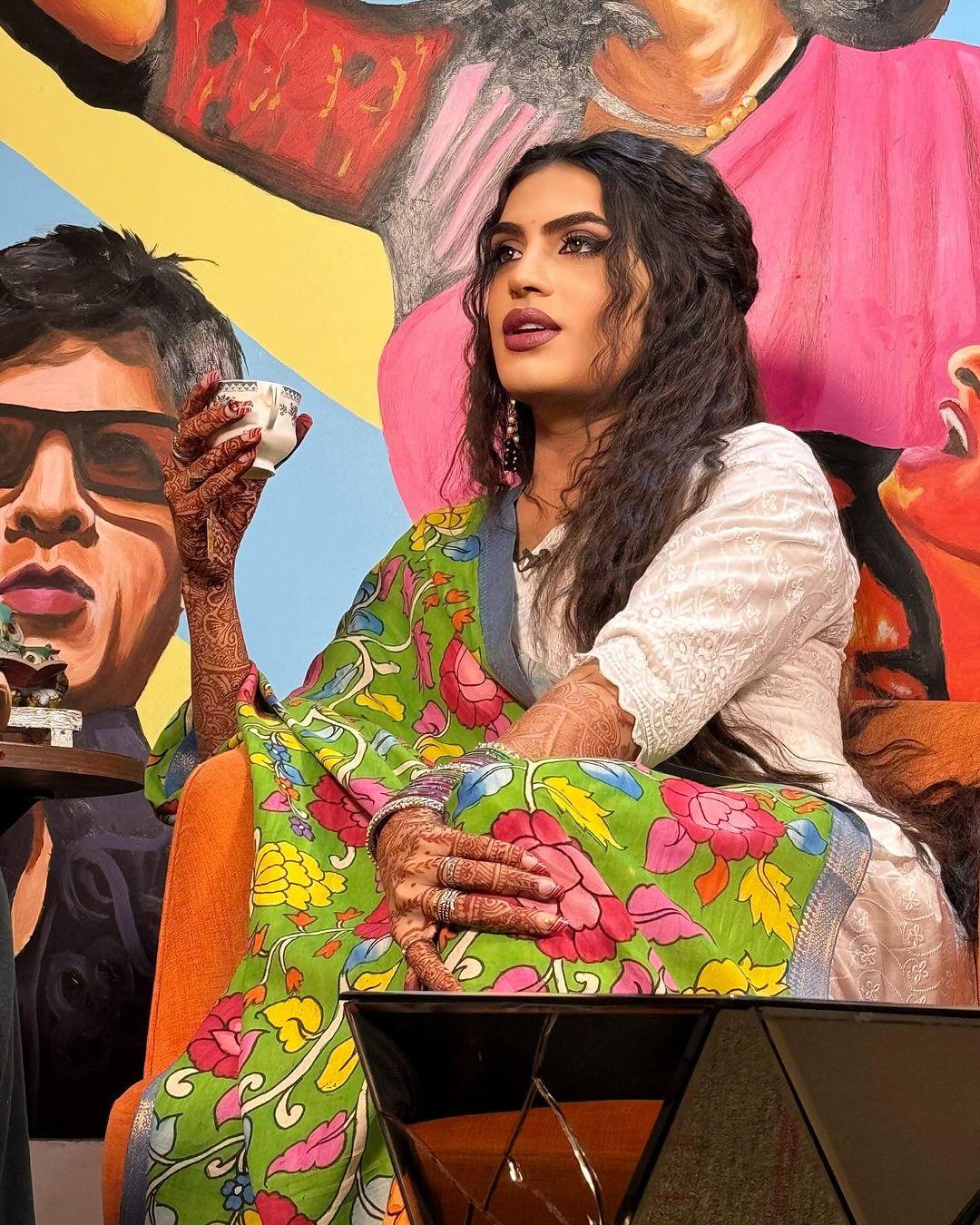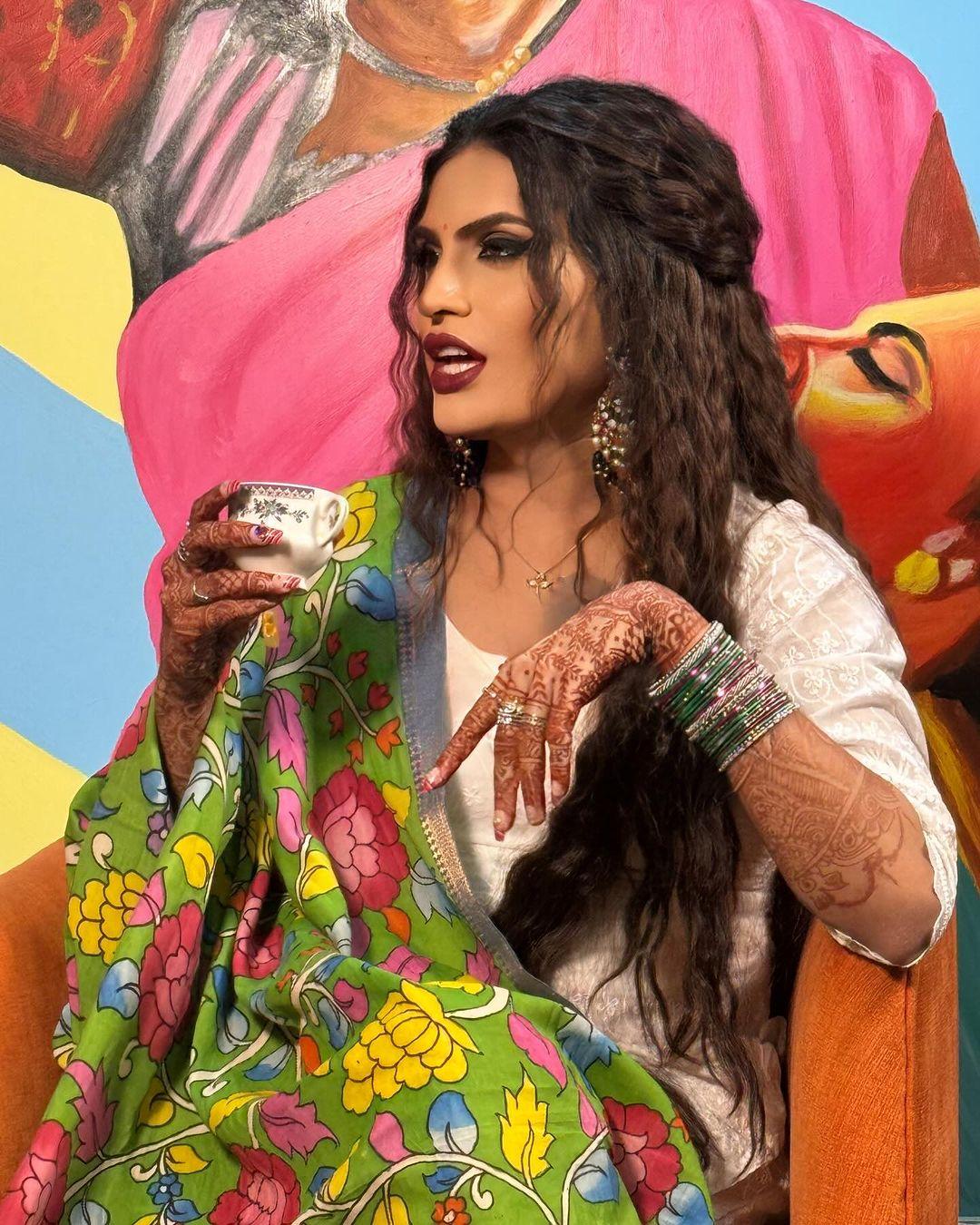During Pride Month 2024, we take a look at when Rani Ko-HE-Nur opened up about representation, her journey and more exclusively with Mid-day.com

Rani-Ko-HE-Nur
Rani Ko-HE-Nur is a name that resonates with power and grace. Rani has broken barriers and challenged stereotypes for the LGBTQIA+ community. Her story is one of resilience, creativity, and a relentless pursuit of representation.
ADVERTISEMENT
During Pride Month 2024, we take a look at when Rani Ko-HE-Nur opened up about representation, her journey, and more exclusively with Mid-day.com.
Reflecting on her time in showbiz, Rani Ko-HE-Nur mentioned, "It's been a while. This is my 18th year in the industry, and it doesn't feel like it." She witnessed a significant transformation in the entertainment mediums, from films being the sole avenue to stardom to the rise of television as a dominant force. Growing up, television was a crucial part of her life. She admired TV stars like Achint Kaur, Nikki Walia, and Mandira Bedi. However, she never saw someone like herself represented seriously on screen.
 Rani Ko-HE-Nur at Mid-day's studio
Rani Ko-HE-Nur at Mid-day's studio
Rani Ko-HE-Nur's journey was not easy. "I never saw somebody like me doing serious stuff," she recalled. People from the LGBTQIA+ community were often the subject of mockery rather than being given serious roles. This lack of representation was disheartening, but it also fueled her determination to change the narrative. "You can't just feel bad about it and do nothing," she states emphatically.
"I don't know who it was funny for, really. You know, like, it was quite, embarrassing. Even for families to sit and watch this together about someone (from the community) being molested or being made fun of. Yeah. I think it was just not cool. And, I realized that this was something I wanted to change." Rani elaborated.
View this post on Instagram
During the conversation, Rani Ko-HE-Nur also passionately called upon Ektaa Kapoor to consider creating a trans Naagin character. "Because Naagins don't have gender," she says.
"Ekta ma'am, I think it's time. Because Naagin ki bal (power) bhi apne baalon (hair) mein hoti hai. Dekho kitne lambe baal hain mere. You can just imagine." Rani laughed as she casually showed off her gorgeous tresses.
 Art has no gender, and Rani Ko-HE-Nur embodies this belief. She shares, "Gender by itself is very fluid, and so is fashion. So is art. What is the gender of art?" This philosophy is evident in her work, which goes beyond traditional gender boundaries. Her hit song, "Pari Hu Main," is a testament to her artistic vision. Although it is not explicitly a transgender anthem, it trended for months, outperforming many other mainstream songs.
Art has no gender, and Rani Ko-HE-Nur embodies this belief. She shares, "Gender by itself is very fluid, and so is fashion. So is art. What is the gender of art?" This philosophy is evident in her work, which goes beyond traditional gender boundaries. Her hit song, "Pari Hu Main," is a testament to her artistic vision. Although it is not explicitly a transgender anthem, it trended for months, outperforming many other mainstream songs.
Being a trans person in the online world is not the easiest task, especially with trolls. Rani shares her experiences with blunt honesty: "They don't know what to say. Like if somebody says something to me, somebody says, 'abe cha**e,' haan kya ho gaya? Bolo na. They don't know what to say. And I'm like, exactly. So what else? You don't tell me what I am. I know what I am"
Bringing to light a broader societal change, Rani said, "That would have hurt somebody in the nineties. Today you have us in politics and education, in healthcare, in the arts, and representing our country internationally, several times over, speaking the way we speak in multiple languages, sitting with our dignity and our integrity and our pallu in its place."
 Subscribe today by clicking the link and stay updated with the latest news!" Click here!
Subscribe today by clicking the link and stay updated with the latest news!" Click here!








